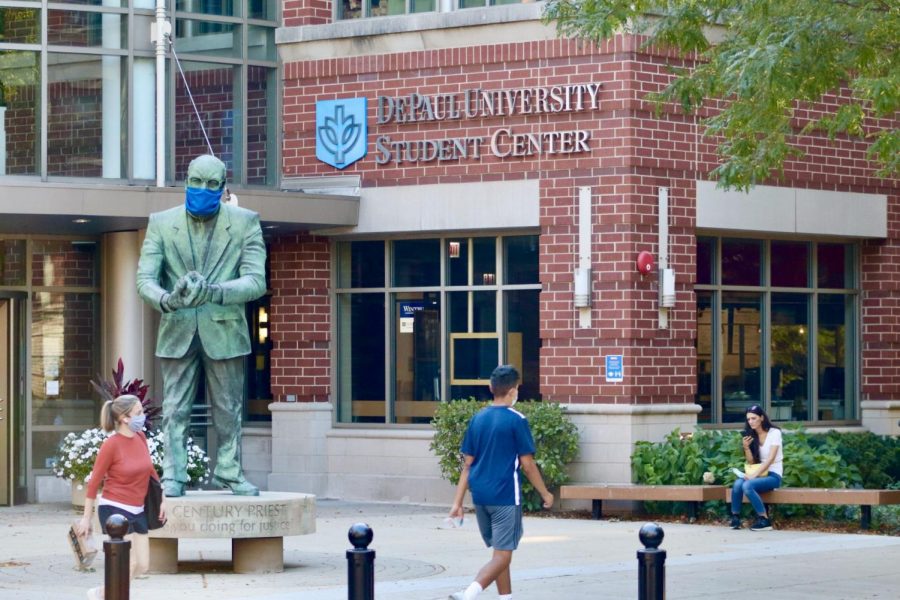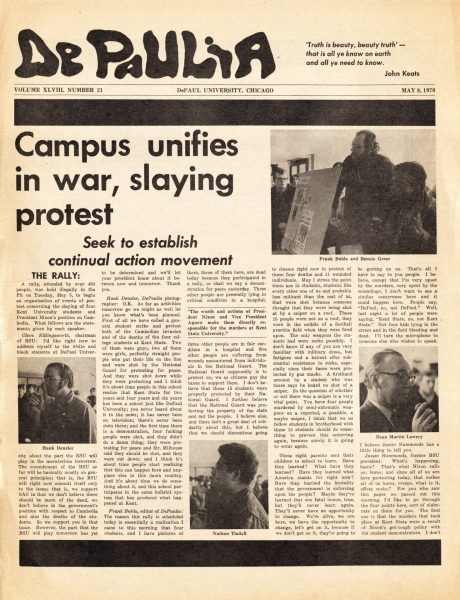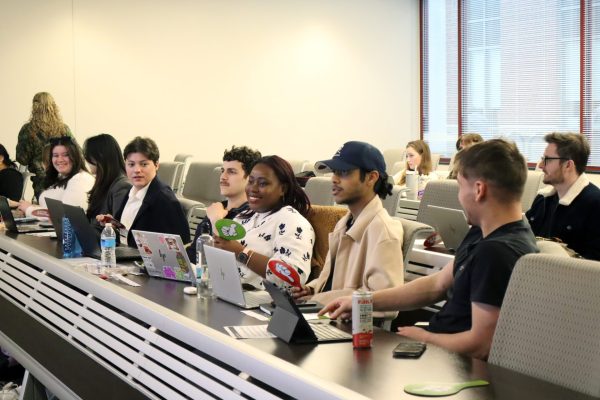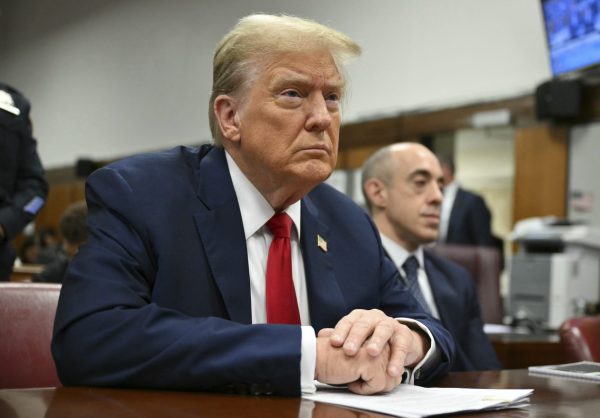Candidates for DePaul’s presidency to begin interview rounds in new year
Students walk around a mostly empty campus during the pandemic.
As DePaul administrators strive for increased student enrollment, higher national rankings and a bigger endowment, they have their eye on lucky number 13 — DePaul’s 13th president, that is.
The search for a new university president will now proceed to the semi-final and final selection rounds in the new year. Judy Greffin, chair of the Search Advisory Committee and a member of the Board of Trustees, announced the news in a letter to the DePaul community on Tuesday.
The new candidate will take the helm on July 1, 2022, replacing President A. Gabriel Esteban.
“I believe the process is going well,” Griffin, chair of the 16-person committee, said in the letter.
Thus far, recruiting firm Issacson Miller has primarily handled applicants and nominations.
The Search Advisory Committee has been tasked with the first steps of the president search. In the fall, it hosted listening sessions and oversaw initial recruitment efforts. In the upcoming month, they will interview the semi-finalists before making final recommendations to the Board of Trustees for a final decision.
The committee will convene in early January to select a group of semi-finalists, according to the letter. Then, they will interview the semi-finalists later in the month After that, the committee will again narrow the pool to a few finalists who will be recommended to the Board of Trustees.
These finalists will be invited to campus in early February for meetings with “key constituents,” according to the letter, which includes vetting committees made up of students, faculty, staff, senior administrators and board members.
This search is consistent with the last presidential search, which concluded with the selection of Esteban and was marked by a push for transparency. This time around, DePaul will use the same “hybrid search model” that included aspects of both an open search — where the names of candidates would be released to the public — and a closed search — where all discussions would take place behind closed doors.
“Even so, students, faculty and staff can expect an inclusive and collaborative finalist interview process,” DePaul spokesperson Russell Dorn said in a statement.
The vetting committees, made up of representatives selected by Faculty Council, Staff Council and Student Government Association, serve as a way to get input on candidates from the university community while still preserving the candidates’ privacy.
Student Government Association President Watfae Zayed is the only student member of the Search Committee.
“[S]tudents should be the most represented group in the search, even though that’s unfortunately not the case with this one,” Zayed previously told The DePaulia. Without students, there’s no university and our input should be considered when making such a big decision.”
So far, students have been included in the search in a couple ways: The Search Committee hosted two listening sessions for students and also gave students an opportunity to fill out an online survey. Now, students are offered the option of submitting questions for the committee to ask candidates.
“Again, we’d like to hear from you regarding potential questions or topics for the vetting committees to consider asking the final candidates,” Griffith’s letter reads. “Your feedback will be provided to the appropriate vetting committee for their consideration as they determine where to focus their attention during their sessions with the finalists.”
The next president will be responsible for leading DePaul as its chief executive officer of students, faculty, staff, finances, among other responsibilities.
The committee, recruitment team and Board are looking for “inspirational, collaborative, and forward-looking leadership” from it’s next president, according to a President Search Prospectus released in August.
This prospectus shows that the new president will likely need to shift away from many of Esteban’s current priorities.
While Esteban prided himself and his administration on its growing national outreach on the West Coast and in the South, the prospectus outlines a vision for an increasingly local, Chicago-centric reach.
“Recognizing that a high percentage of DePaul’s students are from Chicagoland, the president will reinforce this pipeline to make DePaul a magnet for Chicagoland high-schoolers,” the prospectus said.
The document also acknowledged a declining enrollment of traditionally-aged college students and an increased need for non-traditional programming.
It also emphasized that candidates should be entrepreneurial, collaborative and ready to lead a university poised on “significantly broadening its base of philanthropic support” as the university plans for a “comprehensive fundraising campaign,” still yet to be formally announced.
Esteban announced that he would step down from his post as university president in June.
“After much prayer and reflection, I have discerned this is the time for me to shift my focus and energy to my personal and familial journey, and away from our shared institutional endeavors,” Esteban said in a statement at the time. “Now may be the best time for my wife, Jo, and me to pursue some of our other dreams, which includes discovering different ways to serve others.”
President Esteban made history when he became the first lay president at DePaul in 2017, replacing Rev. Dennis H. Holtschneider. June, when Esteban will step down from the position, will mark five years at DePaul. This makes Esteban the shortest-reigning president since Rev. John J. Martin, who served from 1909 to 1910.
Students can submit questions for DePaul’s future president at https://depaul.qualtrics.com/jfe/form/SV_eE5rOsi52I7ZAXQ. The Search Advisory Committee has not yet released a deadline for the selection of the next president, and is still accepting and reviewing applications and nominations.












